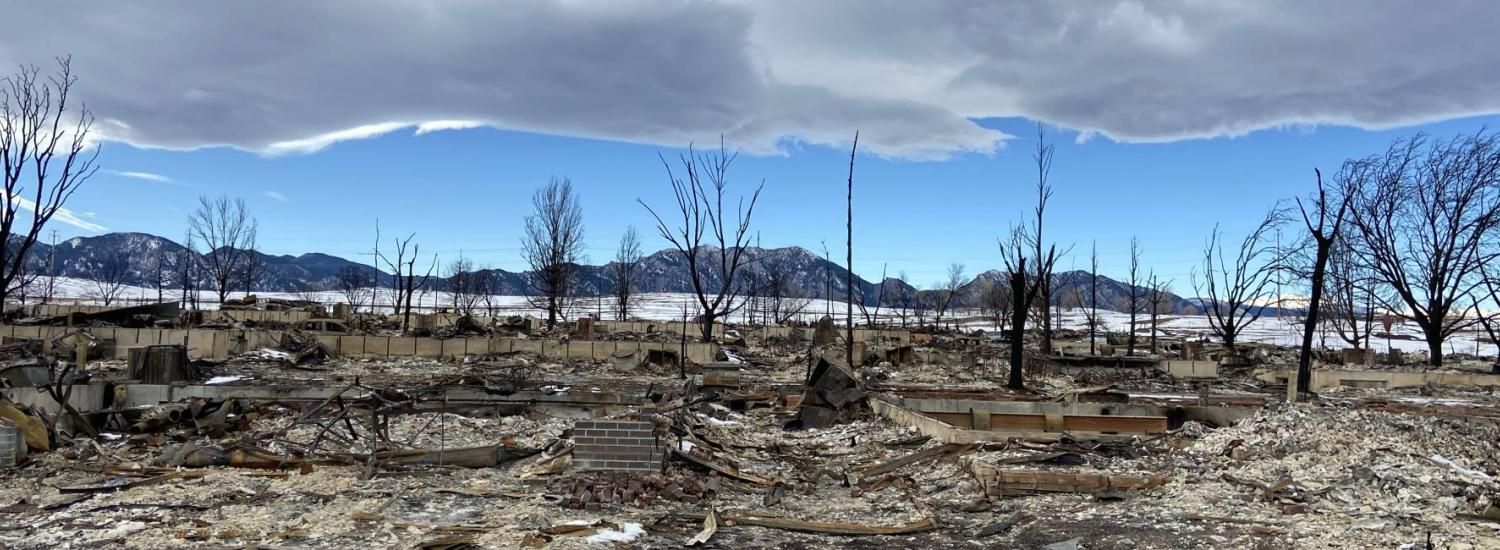Wildfire workshop highlights CU Boulder research expertise, leadership
Experts from across disciplines share ideas for collaboration, continued excellence

More than 50 policymakers, researchers, faculty, and graduate students participated in the first-ever Wildland Urban Interface (WUI) & Wildfire Workshop last week on CU Boulder’s campus.
Christine Wiedinmyer, CIRES Associate Director of Science, and Fernando Rosario-Ortiz, Associate Dean for Faculty Affairs for the College of Engineering and Applied Sciences, hosted the event to share research and expertise from a variety of disciplines at CU Boulder. Wiedinmyer wants to highlight the university’s leadership in WUI and wildfire research.
“It was obvious there is amazing research and expertise all across the university,” said Wiedinmyer. “We wanted to find out who is out there, who is doing what, and where are the synergies, and how we can elevate CU Boulder as a wildfire hub of expertise.”
CIRES Director Waleed Abdalati opened the day with a personal story about his own experience following the Marshall Fire. The fire heavily impacted the CU Boulder community, consuming over 1,000 homes in Superior and Louisville. Several CIRES employees lost their homes entirely and others, including Abadalati and Wiedinmyer, were evacuated, with many homes requiring extensive repairs and clean-up.
After opening remarks and a video from House Representative Joe Neguse, the day included diverse panels, research presentations, and structured conversations.
Heather Bené, CU’s Associate Vice President of Research and Federal Policy, moderated a panel of state and federal experts including Michael Morgan, director of Colorado’s Division of Fire Prevention and Control. CIRES fellows Jennifer Balch and Joost de Gouw presented as did Cresten Mansfeldt, from Environmental Engineering, and Hannah Brenk Brenkert-Smith, with the Institute of Behavioral Science. Presenters highlighted work across campus, from wildfire risk to community-based work, to air quality, water, and soil impacts.
At the end of the day, 11 graduate students presented lightning talks about their ongoing projects. All participants worked together in interactive sessions to brainstorm about how to advance the university's fire research and engage partners beyond the research community.
The meeting followed an eye-opening summer, with wildfire smoke from Canada and elsewhere streaming into the Midwest, New York City, and other areas, creating dangerous air quality conditions.
Wiedinmyer and Rosario-Ortiz will compile the dozens of notes collected throughout the day. They plan to continue supporting the wildfire research community at CU Boulder, pulling together a list of possible next steps, including the creation of affinity groups and regular research summits.
“I look forward to having the College of Engineering and CIRES working together to promote what faculty are doing working together to advance the science around WUI and wildfires with a goal of supporting our citizens in the state of Colorado— and elsewhere,” said Rosario-Ortiz.
Wiedinmyer encourages anyone who was unable to participate in the event to reach out with questions: Christine.Wiedinmyer@Colorado.EDU or Fernando Rosario-Ortiz Fernando.Rosario@colorado.edu.